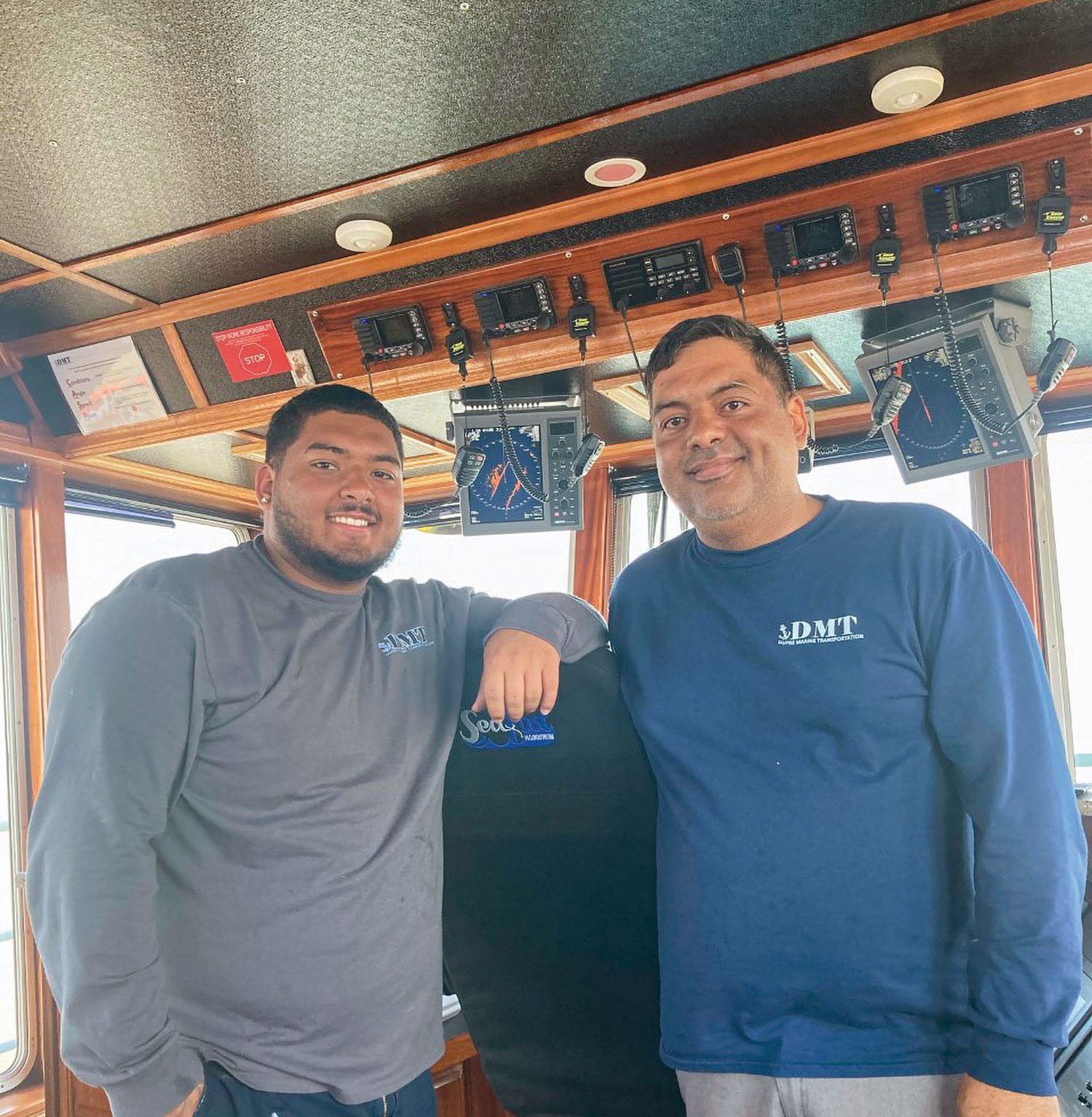Chad Verdin always knew he would wind up working on towboats. Reflecting on the 23 years he’s been a captain and the years on deck before that, he calls it a family legacy and a passion he first learned from his grandfather and his uncles.
“Growing up, when I was young, I used to go on the boat with my Grandpa,” Verdin said. “It was just something I loved doing. I was born into it.”
Verdin was 20 when he was first issued his captain’s license. For the last 8-1/2 years, he has been a captain for Dupre Marine Transportation, headquartered in his hometown of Houma, La.
For the past four-plus years, Verdin has gotten to play a hands-on role in passing that family legacy on to the next generation, with his son, Tristin, serving first as a deckhand and then as a tankerman on his boat.
The two Verdins now serve aboard Dupre Marine’s newly christened mv. Wells Porche, which went to work for Kirby last month.
Verdin recalled how, in 2018, Tristin was 18, a senior in high school and working at Subway. Growing up, Tristin hadn’t really been able to see his Dad at work on towing vessels.
“A lot of companies don’t allow it, so he didn’t really come out here like I did,” he said.
Being honest, though, Verdin said for a long time he actually wanted his son to choose a different career path.
“I wanted him to be some kind of businessman,” Verdin said.
That’s because of how hard it is spending so much of your time away from your family, Verdin said. Time away is one of the few constants Verdin identified in the maritime industry through the years. He pointed to his wife and family as a main reason he’s been able to have a long career as a captain.
“They understand what I do and who I’m doing it for,” he said.
And so when Tristin came to Verdin and asked him to help him get on with Dupre Marine, he agreed but also tried to help him know what to expect.
“I said if he wanted to do this he’d have to commit to it and work his way up,” Verdin said.
And that’s exactly what Tristin has done. Going from making sandwiches to working as a deckhand and a tankerman, Tristin has excelled in his work.
And now, less than five years after starting out, he’s on the cusp of getting his first-issue captain’s license.
Looking back over the time with his son on the boat, Verdin credits his family legacy and personal stories for drawing Tristin to wanting to be a towboat captain. That and the pay.
“It’s a good living,” Verdin said.
Watching his son coming into his own, though, Verdin said he knows Tristin is doing just what he was meant to do.
“I see a lot of me in him,” he said.
And even though Tristin is about to be turned loose to stand watch on his own, Verdin said he still puts his food service training to good work.
“He’s graduated to a few other things, cooking-wise,” Verdin said. “He’s doing four-course meals. He’s not doing sandwiches anymore.”
It’s a different industry now compared to 20 or 30 years ago, Verdin said. What comes to mind, first and foremost, is the safety culture. Verdin can recall, in his early days, crew members not wearing steel-toe boots when on watch and wearing shorts and tank tops when on duty. Policies and procedures—and the attention to following them—have also become more front-and-center over the years, and for good reason.
Verdin recalled how, before he came to Dupre Marine when he was working for another company, he went against company policy and allowed two crew members to go ashore while the boat was tied up. Tragically, one of the crew members somehow wound up falling into the water and dying.
“He was one of my relatives, too,” Verdin said. “It was just a horrible situation. You think, ‘This wouldn’t have happened if I didn’t let him go.’ ”
Asked how he recovered from that trauma, Verdin said, “My wife, crew members I’d had before, and just speaking about it. You can’t keep that inside, or it’ll eat you up.”
“Follow company policy, the safety and procedures, and do the correct thing while you’re out here,” he added.
Verdin also said it’s important for crew members to embrace and value one another, like family.
“You’re a family out here,” he said. “You’ll have bad days out here, but you’re with your crew more than your family, and you have to treat them like family. You have to give respect to get respect.”
Verdin admitted that the younger generation often struggles with the demands of the job, particularly spending so much time away from home. Still, technology like text messaging and video calling allows mariners to stay in touch more than ever before.
“When I first started, I couldn’t do any of that,” he said. “I’d have to sit around and wait for a pay phone. It’s much easier now than before.”
Asked what else keeps the job fresh, Verdin pointed to the demands of the job and the world in which he works.
“It’s challenging at times, and I like a challenge,” he said. “Being out here, sometimes it’s peaceful. You’re traveling and seeing different things. It’s always changing.”




